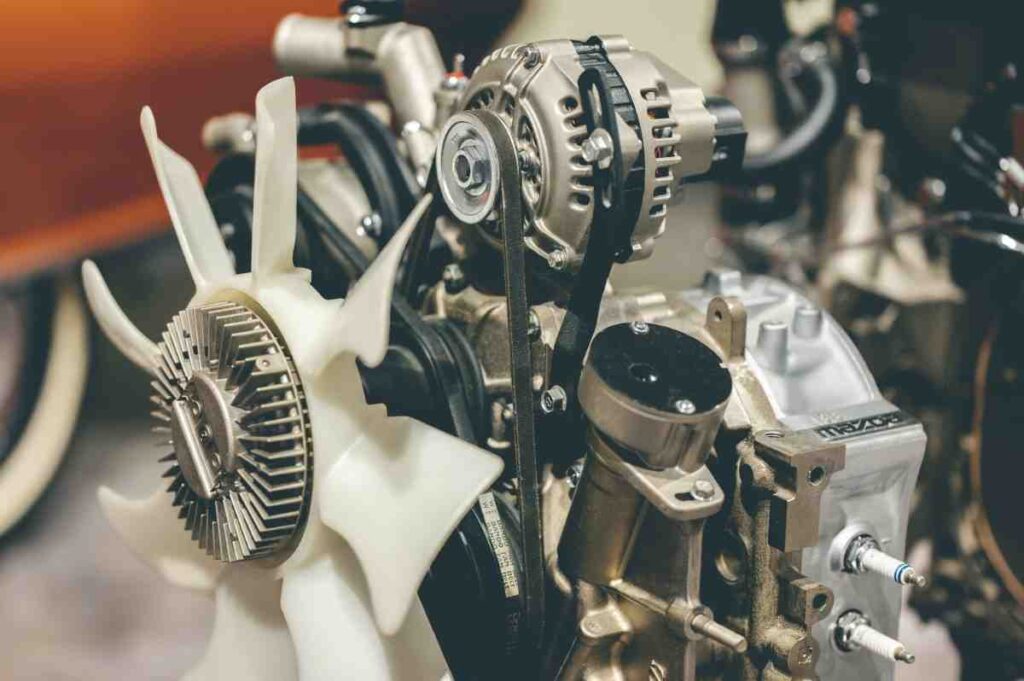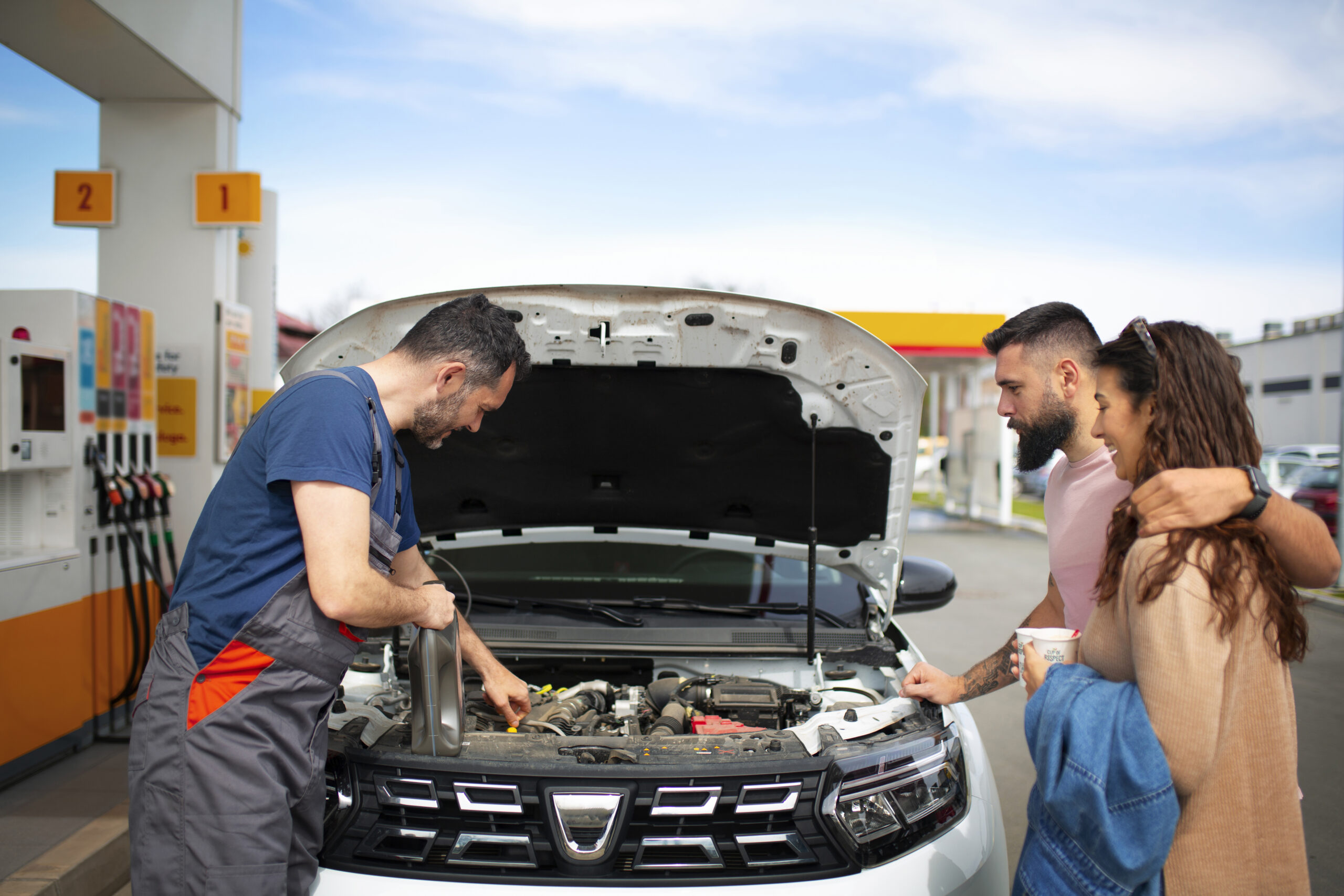Table of Contents
- That Gut-Punch Moment When Your Engine Fails
- The Truth Nobody Tells You About Used Engines
- Why Certified Used Engines Are a Lifesaver
- Busting the Myths That Scare People Off
- A Real Story That Stuck With Me
- How to Not Get Screwed When Buying a Used Engine
- The Stress Nobody Talks About
- The Weird Guilt People Feel About Used Engines
- The “New Car” Trap
- How a Used Engine Actually Feels on the Road
- The Green Side Nobody Talks About
- What Nobody Tells You About Warranties
- Stories From the Trenches
- What You Should Never Do
- The Bottom Line Nobody Says Out Loud
- FAQs
- 1. How much does a used engine really cost?
- 2. How long will it last?
- 3. Is it sketchy to buy online?
- 4. Will my car run like it used to?
- 5. Is it worth it for an older car?
- 6. What paperwork should I get?
- 7. Can you scan the error codes?
- 8. What voids the warranty?
Let’s not pretend. If you’re here reading this, something just went sideways in your life. Your car, the thing you count on every damn day, just gave up on you. And not in a small, “fix it with a quick oil change” way. We’re talking about the worst four words any car owner can hear: Your engine is shot.
That’s the kind of news that makes your stomach drop. One day you’re driving to work, to the store, to pick up your kid, and the next you’re stranded, staring at a repair bill that looks like a bad joke. You might even be wondering if you should just call the junkyard and walk away.
But here’s the part nobody tells you until you’re in that exact nightmare: a blown engine doesn’t have to mean the death of your car. You don’t always need to drop five, eight, or even ten grand on a new one. There’s another option sitting right there, hiding in plain sight, and it’s one most people overlook: used engines.
Not junkyard roulette. Not some duct-taped mess that’s going to leave you on the side of the road in two weeks. Certified used engines are engines that have been pulled, tested, and given new life. Engines that can slide into your car and keep you moving for years, at a fraction of the cost.
And the crazy part? Most people never even hear about it.
That Gut-Punch Moment When Your Engine Fails
Let’s be brutally honest: when your engine fails, it feels like your whole life just collapsed. Your car isn’t just metal, rubber, and paint — it’s your independence. It’s how you make money, how you see family, how you live.
So when it dies? It feels personal.
You hear the knock, the grind, the silence. You see smoke. You smell burnt oil. Your mechanic gives you that “I’m sorry, but…” face. And then the number hits you: thousands of dollars. Maybe more than your car is even worth on paper.
The Truth Nobody Tells You About Used Engines
Here’s the thing: most of the vehicles you see out there on the road right now are running a used engine. That’s literally what “owning a car” means after day one. Engines are built to last for hundreds of thousands of miles. Just because one engine died doesn’t mean they all do.
A used car engine that’s been tested, inspected, and certified is not a gamble — it’s a lifeline. It’s the middle ground between throwing away a perfectly good car and bankrupting yourself on a new engine.
Think about it:
- Buying a new engine is like paying full price for a whole new appliance when you could’ve fixed the part that matters.
- Junking your car is like trashing your entire house because the water heater broke.
- Buying a certified used engine is like saying, “Hey, why don’t I just swap in a solid, working heart instead of burying the whole body?”
It’s common sense. But because dealerships and manufacturers don’t profit much from you choosing used, they rarely mention it.
Read More – Affordable Ways to Improve Car Performance with Used Auto Parts
Why Certified Used Engines Are a Lifesaver
Let’s strip away the noise. Here’s why going with certified used engines actually makes sense in the real world:
- It saves your wallet.
Instead of five to ten grand, you might be looking at half or less. That’s the difference between keeping your car and burying yourself in debt. - It’s proven.
A certified used engine has been in the fight already. It’s been tested in real-world driving conditions. You’re not the guinea pig. - It’s green.
Every time you reuse an engine, you’re cutting down on waste. You’re giving perfectly good machinery a second shot instead of letting it rust in a pile. - It’s available.
With the massive supply of used car parts out there, odds are high that you can find an exact match for your vehicle without waiting months.
And most importantly: it just works. People think “used” equals “broken.” No. “Used” just means it’s been part of someone else’s story before it becomes part of yours.
Busting the Myths That Scare People Off
Here are the usual excuses people throw at me when I suggest a used engine:
“It’s risky. What if it breaks again?”
Engines don’t just explode out of nowhere. If you buy certified, you’re getting one that’s been inspected and guaranteed. Add proper maintenance, and it’ll run strong.
“It won’t last as long.”
That’s what people said about used cars, too — and millions of us drive them for years. Engines are built tough. With the right care, a certified used engine can outlast the car itself.
“It won’t be the same as my original.”
Engines don’t care about “same.” They care about fit. If it matches your car’s make and model, it’s going to run like it’s supposed to. Period.
“This is just a temporary fix.”
Nope. This isn’t duct tape or a patch job. It’s a full-on replacement heart. Done right, it’s anything but temporary.
A Real Story That Stuck With Me
A customer once went into a garage with a Toyota Camry that looked like it had just rolled off the lot. The body was spotless, the interior was well-kept, and the tires were nearly new. But under the hood, the engine was completely dead.
He was ready to junk it. Thought it was over. The dealer told him the engine replacement would cost more than the car’s value.
We found him a certified used engine with just under 70,000 miles. Price? Less than half of what he was quoted. That Camry was back on the road within a week. The guy drove it for another six years. Sold it to a college kid when he upgraded, and last I heard, it’s still going.
That’s the power of not giving up just because the engine tapped out.
How to Not Get Screwed When Buying a Used Engine
Now, let’s be real, you can’t just grab the first thing someone on Craigslist waves at you and hope for the best. You need to be smart.
Here’s how you protect yourself:
- Go Certified. Don’t gamble. Certified used engines have been tested and verified. That’s peace of mind right there.
- Mileage Matters. Look for an engine that’s been road-tested but not beaten to death.
- Ask Questions. Where did it come from? Was it pulled from a wreck? What’s the history? You deserve answers.
- Get a Warranty. Even a short one shows the seller isn’t hiding something.
Work With Pros. Reputable suppliers of used car parts don’t vanish overnight. Avoid sketchy one-offs.
The Stress Nobody Talks About
This part doesn’t get said enough. When your engine dies, yeah, the money sucks. But it’s the stress that really crushes you.
The panic of wondering how you’ll get to work. The sinking feeling when you look at your kids and wonder how you’ll drive them anywhere. The pressure of bills piling up when you’re staring at repair quotes.
Here’s the raw truth: choosing a used engine doesn’t just fix your car. It fixes your peace of mind. It lets you breathe again. It gives you back your independence.
Because in the end, it’s not about car parts. It’s about life not grinding to a halt when you least expect it.
The Weird Guilt People Feel About Used Engines
People carry this weird guilt when they think about putting a used engine into their car. Like they’re somehow “cheating” or cutting corners.
Let me tell you straight: there’s nothing shameful about it. You’re not failing. You’re not being cheap. You’re being smart.
Cars are machines. They’re built to be repaired, reused, and reassembled. Nobody bats an eye when you buy a used couch, a used fridge, or even a used house. But mention “used engine” and suddenly people act like you’re slapping duct tape on a sinking ship.
That’s nonsense. You’re not patching — you’re swapping in a working heart. That’s called survival.
The “New Car” Trap
You know what really gets me heated? The way dealerships prey on people when their engine blows. They sit you down, shake their head, and say, “Honestly, it’s not worth fixing. Let’s talk about trading up.”
Sounds nice, right? Wrong.
They’re dangling the idea of a shiny new car when you’re at your weakest — stressed, scared, desperate. But guess what? That new car? That’s 30, 40, maybe 50 grand of debt chained to your ankle for years. And all because one part in your old car gave out.
Why bury yourself under a car loan when a certified used engine could keep your ride alive for a fraction of that cost?
Dealers make money selling new cars. They don’t make squat, telling you the truth: that your old car can live again with the right used engine.
How a Used Engine Actually Feels on the Road
People ask me all the time: “But does it feel different?”
Here’s the honest truth: no. If you get the right match — the correct make, model, year, and engine code — your car doesn’t know the difference. It starts. It runs. It moves. Period.
The only difference is in your wallet and your stress levels. You’ll still hear your favorite song blasting through the speakers. You’ll still drive your kids to school. You’ll still roll down the windows on a summer night. The only thing that changes is that you’re not drowning in debt.
The Green Side Nobody Talks About
Here’s another piece people forget: every time you go with a used car engine, you’re doing something good for the planet.
Engines don’t belong in landfills. They’re not garbage — they’re precision machines built to last. By reusing them, you cut down on waste, on mining for new metals, and on energy used in manufacturing.
Think of it like recycling, but on a massive scale. You’re giving a machine a second life and keeping it out of the junk heap. It’s not just good for your car — it’s good for everyone.
What Nobody Tells You About Warranties
Let’s clear the air on this: not all warranties are fairy tales. Some are worth their weight in gold, and some are about as useful as a wet napkin.
When you buy certified used engines, the good sellers back them with a real warranty. That’s how you know they trust what they’re selling. It might be 6 months, a year, sometimes longer. And that’s enough to cover the “just in case.”
But here’s the real kicker: most failures don’t happen overnight. If an engine runs clean out of the gate, chances are it’ll keep running. Warranties aren’t about forever. They’re about peace of mind while you settle back in behind the wheel.
Stories From the Trenches
Here are a couple of stories about used engines that stuck with me:
- The single mom with a minivan. The engine died. The dealer told her to junk it. We found a used engine, low miles, clean as a whistle. It costs her less than a year of car payments. That van got her kids to school for another four years.
- The delivery driver. His car was his job. The engine blew, and he was ready to quit. A certified used engine got him back on the road in a week. He told me later, “Man, that engine didn’t just save my car — it saved my paycheck.”
- The college kid with a beat-up Civic. Couldn’t afford a new car. Found a used engine online. We helped install it. That Civic is still buzzing around town today, probably outliving its owner’s will to do homework.
These aren’t miracles. They’re just proof that used engines work. Real people. Real cars. Real second chances.
What You Should Never Do
Let’s be brutally raw for a second: if you’re shopping for a used engine, there are a few don’ts you should tattoo into your brain:
- Don’t buy blind. If a seller can’t tell you the mileage, history, or condition? Walk away.
- Don’t chase “too cheap.” A $200 engine might look tempting until it seizes up two days later. Value is not the same as bargain-bin.
- Don’t skip the warranty. If they don’t offer one, that’s a red flag the size of a billboard.
Don’t DIY unless you know your stuff. Swapping an engine isn’t like changing spark plugs. Pay a pro, unless you like the idea of a car that won’t even turn over.
Read More – How to Ensure Compatibility of Used Car Parts with Your Vehicle
The Bottom Line Nobody Says Out Loud
Here’s the rawest truth of all: a blown engine feels like the end of the road. But it doesn’t have to be.
You don’t have to drown in debt for a new car. You don’t have to empty your savings for a brand-new engine. You don’t have to junk your ride and start over.
You’ve got another option: used engines. Reliable. Affordable. Smart.
This isn’t just about car parts. It’s about giving yourself breathing room when life already feels like it’s crushing you. It’s about keeping your independence without bleeding your wallet dry. It’s about being resourceful instead of being cornered.
So if your engine just died and you’re sitting there thinking it’s game over? Take a breath. Look around. Somewhere out there, the engine you need is waiting. Tested. Certified. Ready to carry you down the road again.
Not junk. Not second-best. Just another chance. And sometimes, that’s all you really need. Because at the end of the day, a car isn’t just metal — it’s freedom, memories, and survival. A used engine doesn’t just fix a car; it helps you keep living your life on your own terms.





